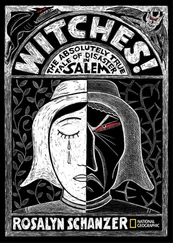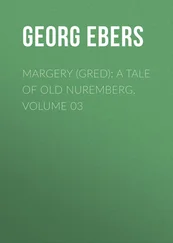Henry Peterson - Dulcibel - A Tale of Old Salem
Здесь есть возможность читать онлайн «Henry Peterson - Dulcibel - A Tale of Old Salem» — ознакомительный отрывок электронной книги совершенно бесплатно, а после прочтения отрывка купить полную версию. В некоторых случаях можно слушать аудио, скачать через торрент в формате fb2 и присутствует краткое содержание. Жанр: foreign_antique, foreign_prose, Сказка, на английском языке. Описание произведения, (предисловие) а так же отзывы посетителей доступны на портале библиотеки ЛибКат.
- Название:Dulcibel: A Tale of Old Salem
- Автор:
- Жанр:
- Год:неизвестен
- ISBN:нет данных
- Рейтинг книги:4 / 5. Голосов: 1
-
Избранное:Добавить в избранное
- Отзывы:
-
Ваша оценка:
- 80
- 1
- 2
- 3
- 4
- 5
Dulcibel: A Tale of Old Salem: краткое содержание, описание и аннотация
Предлагаем к чтению аннотацию, описание, краткое содержание или предисловие (зависит от того, что написал сам автор книги «Dulcibel: A Tale of Old Salem»). Если вы не нашли необходимую информацию о книге — напишите в комментариях, мы постараемся отыскать её.
Dulcibel: A Tale of Old Salem — читать онлайн ознакомительный отрывок
Ниже представлен текст книги, разбитый по страницам. Система сохранения места последней прочитанной страницы, позволяет с удобством читать онлайн бесплатно книгу «Dulcibel: A Tale of Old Salem», без необходимости каждый раз заново искать на чём Вы остановились. Поставьте закладку, и сможете в любой момент перейти на страницу, на которой закончили чтение.
Интервал:
Закладка:
CHAPTER IX.
One Hundred and Fifty More Alleged Witches
Ah this was bad enough, but it was but the beginning of trouble. Tituba had spoken of two other women, but had given no names. The "afflicted children" were still afflicted, and growing worse, instead of better. The Rev. Master Noyes of Salem town, the Rev. Master Parris of Salem village, Sergeant Thomas Putnam, and his wife, – which last also was becoming bewitched, and had many old enmities – and many other influential people and church members, were growing more excited, and vindictive against the troubles of their peace, with every passing day.
"Who are they that still torment you in this horrible manner?" was the question asked of the children and young women, and they had their answers ready.
There had been an old quarrel between the Endicotts and the Nurses, a family which owned the Bishop Farm, about the eastern boundary of said farm. There had been the quarrel about who should be minister, in which the Nurses had sided with the determined opponents of Mistress Ann Putnam's reverend brother-in-law. The Nurses and other families were staunch opposers of Master Parris's claim to ownership of the Parsonage and its grounds. And it was not to be wondered at, that the accusations should be made against opponents rather than against friends.
Besides, there were those who had very little faith in the children themselves, and had taken a kind of stand against them; and these too, were in a dangerous position.
"Who torments you now?" The answer was ready: Martha Corey, and Rebecca Nurse, and Bridget Bishop, and so on; the charges being made now against the members, often the heads, of the most reputable families in Salem town and village and the surrounding neighborhoods. Before the coming of the winter snows probably one hundred and fifty persons were in prison at Salem and Ipswich and Boston and Cambridge. Two-thirds of these were women; many of them were aged and venerable men and women of the highest reputation for behavior and piety. Yet, they were bound with chains, and exposed to all the hardships that attended incarceration in small and badly constructed prisons.
A special court composed of the leading judges in the province being appointed by the Governor for the trial of these accused persons, a mass of what would be now styled "utter nonsense" was brought against them. No wonder that the official record of this co-called court of justice is now nowhere to be found. The partial accounts that have come down to us are sufficient to brand its proceeding with everlasting infamy. Let us recur to the charges against some of these persons:
The Rev. Cotton Mather, speaking of the trial of Bridget Bishop, says: "There was one strange thing with which the Court was newly entertained . As this woman was passing by the meeting-house, she gave a look towards the house; and immediately a demon, invisibly entering the house, tore down a part of it; so that, though there was no person to be seen there, yet the people, at the noise, running in, found a board, which was strongly fastened with several nails, transported into another quarter of the house."
A court of very ignorant men would be "entertained" now with such a story, in a very different sense from that in which the Rev. Cotton Mather used the word. The Court of 1692, doubtless swallowed the story whole, for it was no more absurd than the bulk of the evidence upon which they condemned the reputed witches.
One of the charges against the Rev. Master Burroughs, who had himself been a minister for a short time in the village, was, that though a small, slender man, he was a giant in strength. Several persons witnessed that "he had held out a gun of seven foot barrel with one hand; and had carried a barrel full of cider from a canoe to the shore." Burroughs said that an Indian present at the time did the same, but the answer was ready. "That was the black man, or the Devil, who looks like an Indian."
Another charge against Master Burroughs was, that he went on a certain occasion between two places in a shorter time than was possible, if the Devil had not assisted him. Both Increase Mather, the father, and his son Cotton, two of the most prominent and influential of the Boston ministers, said that the testimony as to Mr. Burroughs' giant strength was alone sufficient rightfully to convict him. It is not improbable that the real animus of the feeling against Master Burroughs was the belief that he was not sound in the faith; for Master Cotton Mather, after his execution, declared to the people that he was "no ordained minister," and called their attention to the fact that Satan often appeared as an angel of light.
CHAPTER X.
Bridget Bishop Condemned to Die
Salem, the habitation of peace, had become, by this time a pandemonium. The "afflicted children" were making accusations in every direction, and Mistress Ann Putnam, and many others, were imitating their example.
To doubt was to be accused; but very few managed to keep their heads sufficiently in the whirlwind of excitement, even to be able to doubt. With the exception of Joseph Putnam, and his visitor, Ellis Raymond, there were very few, if any, open and outspoken doubters, and indignant censurers of the whole affair. Dulcibel Burton also, though in a gentler and less emphatic way, sided naturally with them, but, although she was much less violent in her condemnation, she provoked even more anger from the orthodox believers in the delusion.
For Joseph Putnam, as belonging to one of the most influential and wealthy families in Salem, seemed to have some right to have an opinion. And Master Raymond was visiting at his house, and naturally would be influenced by him.
Besides, he was only a stranger at the best; and therefore, not entirely responsible to them for his views. But Dulcibel was a woman, and it was outrageous that she, at her years, should set up her crude opinions against the authority of the ministers and the elders.
Besides, Joseph Putnam was known to be a determined and even rather desperate young man when his passions were aroused, as they seldom were though, save in some just cause; and he had let it be known that it would be worth any person's life to attempt to arrest him. It was almost the universal habit of that day, to wear the belt and sword; and Messrs. Putnam and Raymond went thus constantly armed. Master Putnam also kept two horses constantly saddled in his stable, day and night, to escape with if necessary, into the forest, through which they might make their way to New York. For the people of that province, who did not admire their Puritan neighbors very much, received all such fugitives gladly, and gave them full protection.
As for Master Raymond, although he saw that his position was becoming dangerous, he determined to remain, notwithstanding the period which he had fixed for his departure had long before arrived. His avowed reason given to Joseph Putnam, was that he was resolved to see the crazy affair through. His avowed reason, which Master Putnam perfectly understood, was to prosecute his suit to Dulcibel, and see her safely through the dangerous excitement also.
"They have condemned Bridget Bishop to death," said Master Putnam, coming into the house one morning from a conversation with a neighbor.
"I supposed they would," replied Master Raymond. "But how nobly she bore herself against such a mass of stupid and senseless testimony. Did you know her?"
"I have often stopped at her Inn. A fine, free-spoken woman; a little bold in her manners, but nothing wrong about her."
"Did you ever hear such nonsense as that about her tearing down a part of the meeting-house simply by looking at it? And yet there sat the best lawyers in the colony on the bench as her judges, and swallowed it all down as if it had been gospel."
Читать дальшеИнтервал:
Закладка:
Похожие книги на «Dulcibel: A Tale of Old Salem»
Представляем Вашему вниманию похожие книги на «Dulcibel: A Tale of Old Salem» списком для выбора. Мы отобрали схожую по названию и смыслу литературу в надежде предоставить читателям больше вариантов отыскать новые, интересные, ещё непрочитанные произведения.
Обсуждение, отзывы о книге «Dulcibel: A Tale of Old Salem» и просто собственные мнения читателей. Оставьте ваши комментарии, напишите, что Вы думаете о произведении, его смысле или главных героях. Укажите что конкретно понравилось, а что нет, и почему Вы так считаете.












